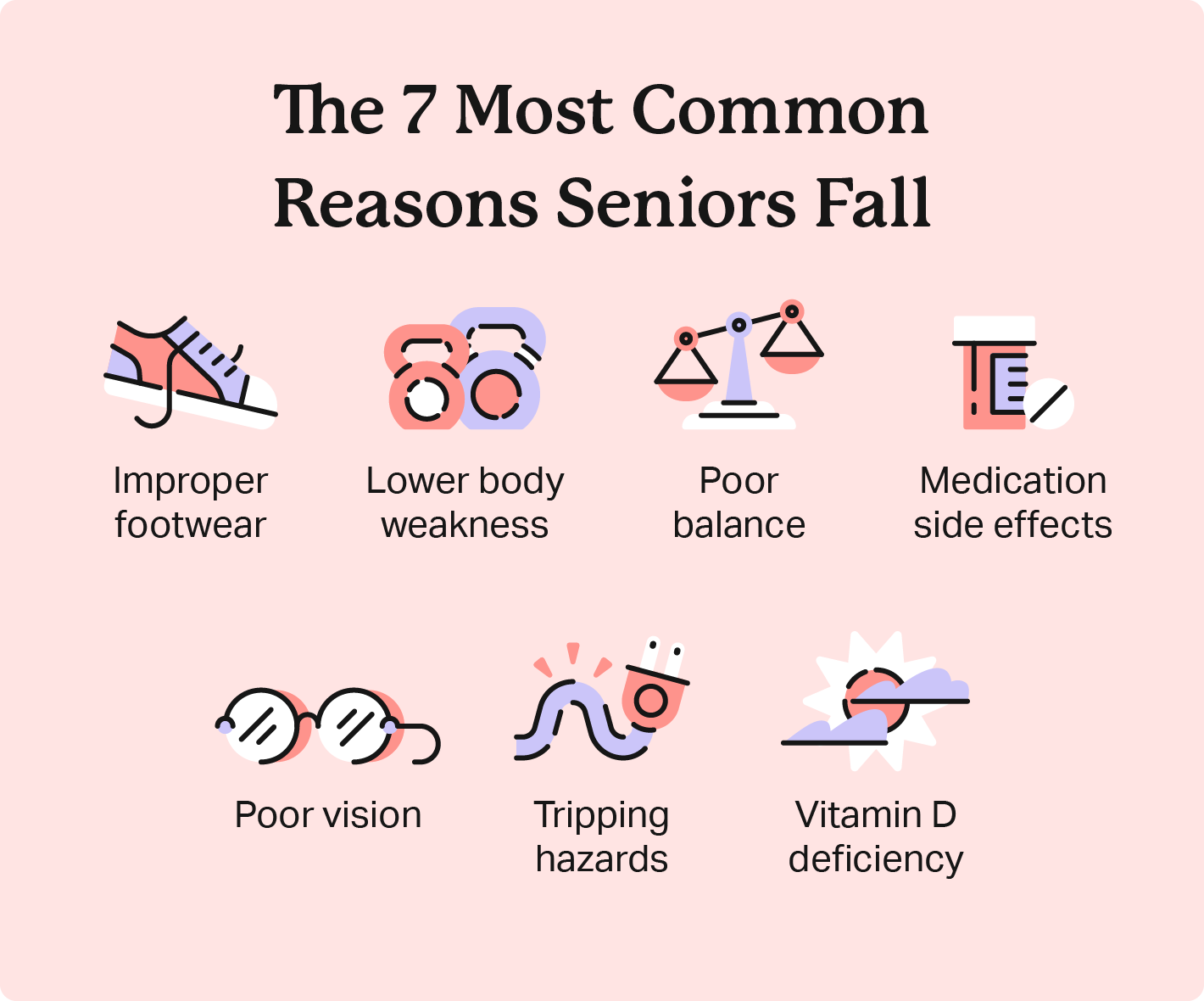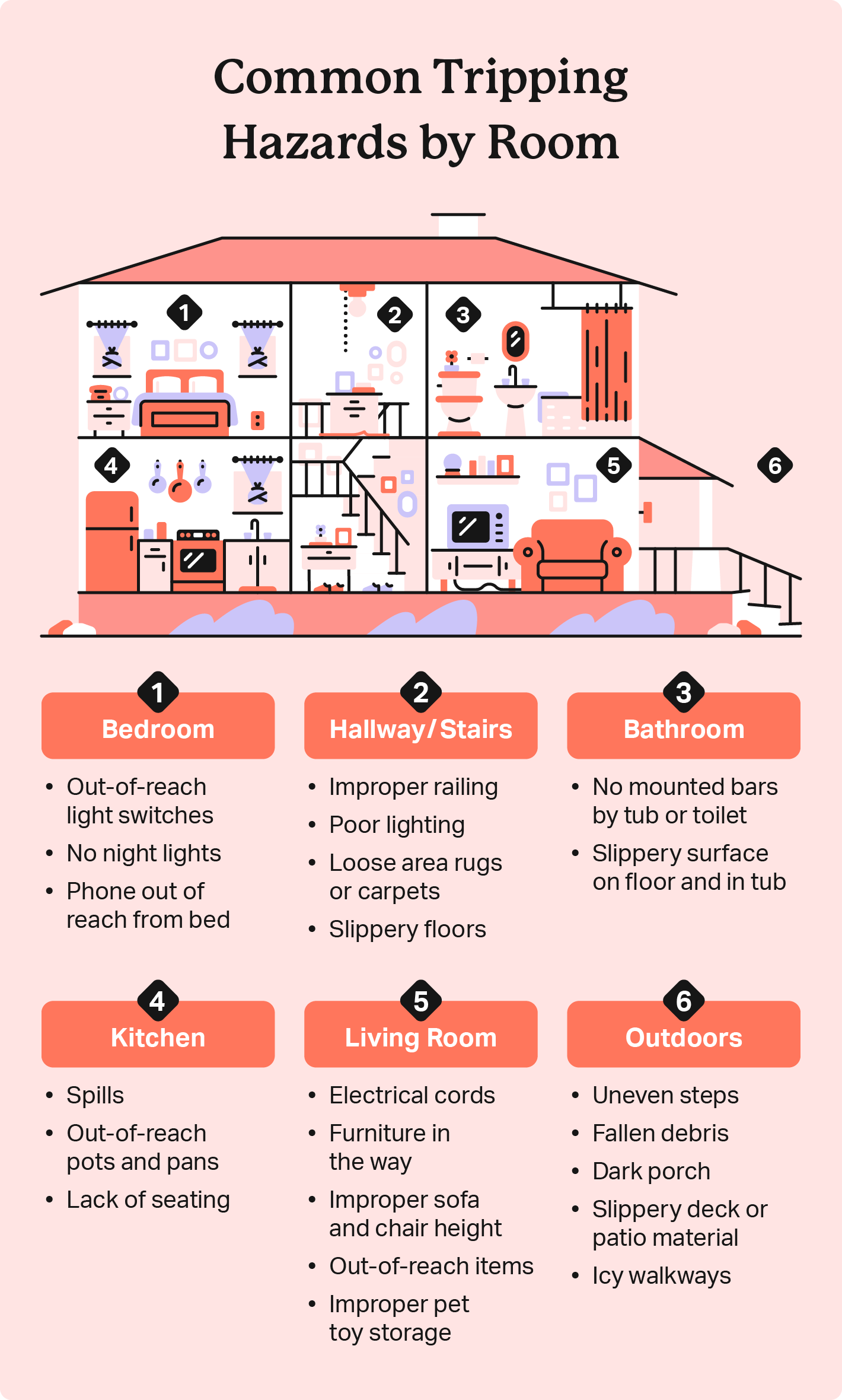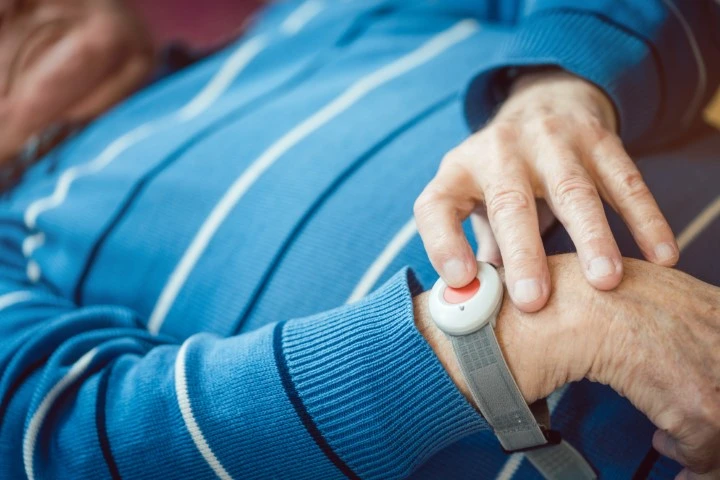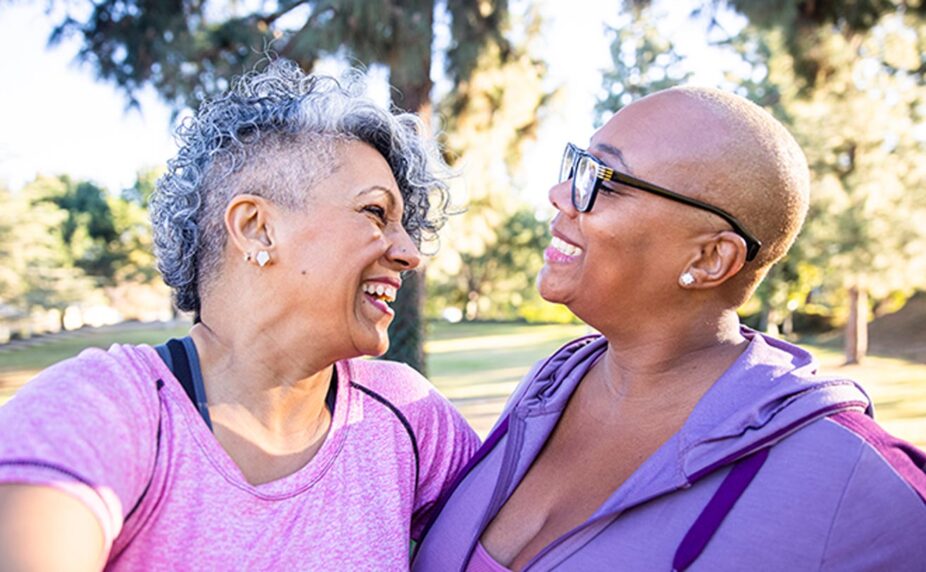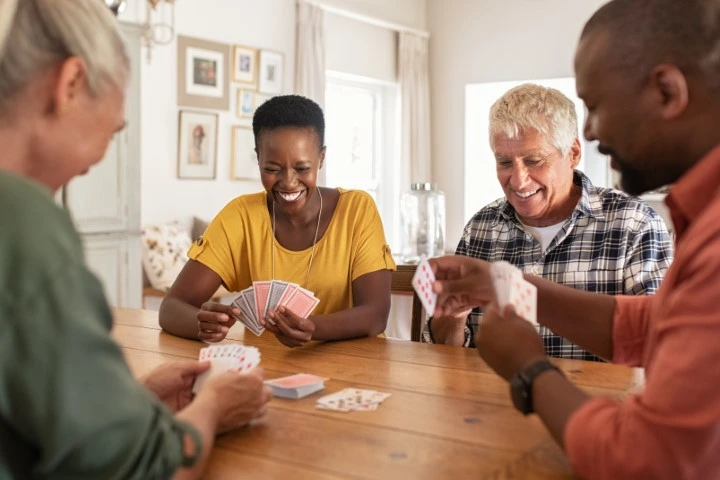A fall may result in fractures, head injuries, and post-hospitalization care that can be expensive and time-consuming. Some seniors experience traumatic setbacks or develop a fear of movement that may lead to social isolation and depression.
Senior fall prevention is important to make a senior’s home as safe as possible to allow them as much mobility as possible and keep them healthy. According to the World Health Organization, over 37 million falls require medical attention each year, so it’s important to take on this issue from all angles.
Keep reading for data-proven tips to reduce fall risks for your loved ones.
1. Find Environmental Risks
According to the National Council on Aging, 60% of falls occur in the home. Go around the premises to identify potential dangers. Look at the arrangement of the furniture: Is there a low chest that may present a tripping hazard?
The CDC identifies seven major risk factors for falls:
- Improper footwear
- Lower body weakness
- Poor balance
- Medication side effects
- Poor vision
- Tripping hazards in the home
- Vitamin D deficiency
Make sure there are clear paths for the senior resident to move around the home easily. Remove cords and area rugs that aren’t pinned down to keep the senior from tripping. How about the flooring? Is it slippery? Consider using anti-slip tiles.
As people age, their senses deteriorate, so dim lighting may not be suitable in a home for a senior. Install adjustable lights so you can change the intensity as needed.
Also, make sure toilet fixtures and handrails in the bathroom are installed at the right height, and place slip-resistant mats on the floor to improve stability.
2. Identify Potential Health Hazards
Examine the health of the person in question to find and minimize factors that could lead to a fall.
For instance, some prescription medications can cause dizziness or sleepiness; if this is the case, check with the prescribing doctor to see if they can be taken at bedtime.
There are many different ways to approach staying healthy as you age. Certain health conditions increase the risk of falling and should be addressed, such as:
- Dementia
- High blood pressure
- Heart conditions
- Seizures
- Bad vision
A person with mobility issues should have the right devices to help them move about safely, whether they need a cane, a walker, or a wheelchair. Some seniors might be hesitant to use these aids, but gentle reminders that they can gain more independence may help reframe their opinion.
3. Educate About Interventions
Properly trained caregivers can help reduce the risk of falling.
Whoever is in charge of watching over an elderly person should be able to recognize when a fall could be imminent, prevent it when they can, and know what to do after a fall happens.
It’s also a good idea to get the person involved in activities that can help improve their strength and mobility, which could lessen the chances of a fall. For instance, tai chi helps the elderly improve mental agility, flexibility, and balance, thereby reducing falls. And taking a yoga class can help the elderly improve their balance and overcome the fear of falling.
If you’re a caregiver struggling to broach the topic of making these lifestyle changes with an older family member, the National Council on Aging has a conversation guide to help you navigate this difficult discussion.
4. Avoid Outdated Tools
Bed and chair alarms have been used in the past to alert caregivers when a fall happens, but these are no longer recommended: By the time the alarm is triggered, the person has already fallen.
In addition, the noise can be quite frightening, and some people may panic and injure themselves worse as they try to scurry to safety. According to some studies, alarms also contribute to immobility, a false sense of security, and stress.
Bed rails are another common tool that are no longer recommended. Initially installed to prevent people from falling out of their beds, bed rails can actually make the danger worse if a person tries to climb over them to get out of bed, as this will cause them to fall from a greater height and in a more awkward position.
For peace of mind, use a medical alert device so if a fall happens, emergency services can be contacted right away. Otherwise, use tried-and-true methods to prevent falls like physical therapy and handrails. When in doubt, you can hire a certified aging in place specialist for expert recommendations on how to make a home safer for a senior.
5. Consider Assistance
As parents age, they may encounter more challenges at home, and helping them to stay in their home safely may eventually prove to be too much for one family member to take on.
If your parent requires health care or help with showering or meals, you may need to consider taking steps to improve the situation, whether this means that they need to move in with you, hire an in-home caregiver or visiting nurse, or move to a nursing facility. You might want to consider hiring outside help if the aging adult:
- Struggles with personal hygiene and care
- Is unable to properly clean their space
- Experiences loneliness and needs help creating social plans
- Forgets to pay bills on time
- Doesn’t take medication appropriately or on time
- Relies on frozen meals or avoids cooking
If a family member is a caregiver, it also could be time to hire help if they’re experiencing caregiver burnout. It’s best to discuss these matters with the person who needs help and try to involve them in the decision. Try to be calm and patient — some people are very sensitive about the issues that come with aging.
Try to see things from their perspective and consider all the options before choosing the right one for your situation.
6. Create A More Senior-Friendly Home
If you’re caring for an elderly parent, you can make your house safer for them with some modifications.
Work with an occupational therapist to identify your parent’s needs, and hire a contractor for more complicated remodeling.
Adequate lighting is very important. Use a light meter to determine if the lighting is at the level recommended for seniors, and try to maintain a uniform light intensity throughout the house to reduce contrast.
Pay attention to the entrance of the house: Check to see that the entryway metal strips are not protruding above the floor surface because somebody may trip over them.
If there are steps at the entrance, cover them with non-slip mats and install handrails for support.
In the bathroom, a senior may need grab bars, a magnified mirror, a tub seat, a pill bottle magnifier, and sandals with a good grip.
7. Make Healthy Living And Lifestyle Choices
According to the CDC, regular exercise is very beneficial for seniors. The positive effects include:
- Reduces the risk of falling and bone fractures
- Reduces blood pressure in people with hypertension
- Improves stamina and muscle strength
- Promotes feelings of well-being
- Maintains healthy bones, muscles, and joints
- Reduces joint swelling and pain
Exercising at least three hours a week may even add up to five years to a person’s life span. Senior adults also benefit from social interaction.
Social activities can even help to reduce the risk of Alzheimer’s disease, some cancers, cardiovascular problems, osteoporosis, and some mental diseases.
Some types of classes can combine both physical activity and social interaction, making them good ideas for seniors to try.
For instance, social dancing has been shown to have a positive impact on seniors who are suffering from dementia, Alzheimer’s disease, cognitive decline, and cognitive impairment.
Take Care With Life Insurance
It takes a multipronged approach to keep seniors healthy as they age. Beyond physical well-being, they also need support for their emotional well-being. Final expense life insurance allows seniors and their families to focus on living their lives instead of worrying about the future. Get an instant quote today to see how Choice Mutual can help.
Additional Resources
- Preventing Falls Room by Room
- Statistics on Falls
- Steps To Prevent Falls
- Advice for Fall Prevention
- How To Prevent Falls
Choice Mutual often cites third-party websites to provide context and verification for specific claims made in our work. We only link to authoritative websites that are known to provide accurate information. You can learn more about our editorial standards, which guides our mission of delivering factual and impartial content.
- 37 million falls. https://www.who.int/news-room/fact-sheets/detail/falls
- 60% of falls. https://www.ncoa.org/article/get-the-facts-on-falls-prevention
- risk factors for falls. https://www.cdc.gov/falls/facts.html
- tai chi helps the elderly. https://news.harvard.edu/gazette/story/2017/04/tai-chi-can-prevent-elderly-from-falls-add-mental-agility/
- taking a yoga class. https://ogg.osu.edu/media/documents/sage/Wk3_Schmid%20article.pdf
- conversation guide. https://ncoa.org/article/falls-prevention-conversation-guide-for-caregivers
- hire a certified aging in place specialist. https://www.care.com/c/certified-aging-in-place-specialist/
- According to the CDC. https://www.cdc.gov/nccdphp/sgr/olderad.htm
- social dancing. https://clinicaltrials.gov/ct2/show/NCT03475316
- Preventing Falls Room by Room. https://www.nia.nih.gov/health/preventing-falls-home-room-room
- Statistics on Falls. https://www.who.int/news-room/fact-sheets/detail/falls
- Steps To Prevent Falls. https://www.ncoa.org/healthy-aging/falls-prevention/preventing-falls-tips-for-older-adults-and-caregivers/6-steps-to-protect-your-older-loved-one-from-a-fall/
- Advice for Fall Prevention. https://orthoinfo.aaos.org/en/staying-healthy/guidelines-for-preventing-falls/
- How To Prevent Falls. https://www.nia.nih.gov/health/prevent-falls-and-fractures



